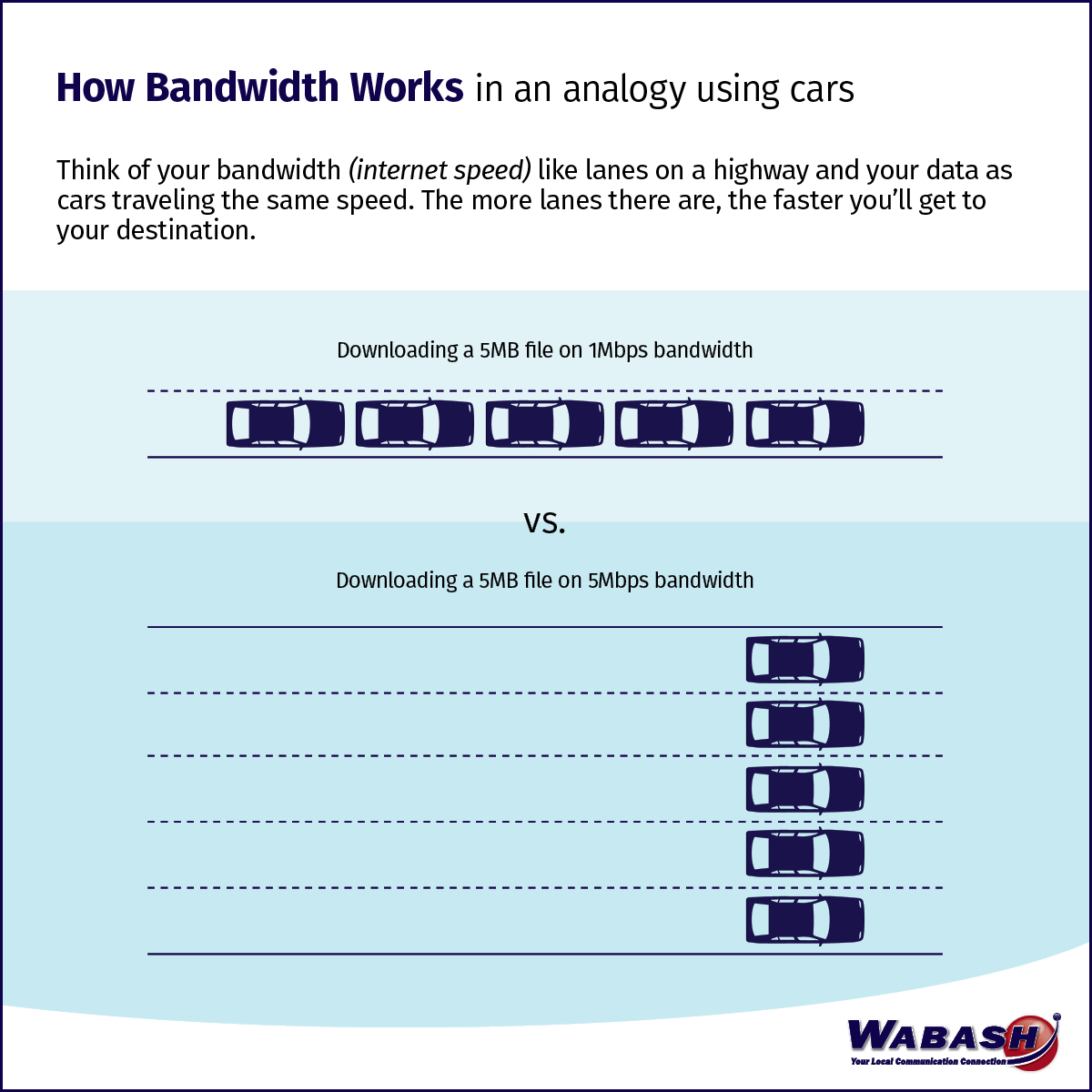Slow internet speed? Elf that! Here’s a quick read on how internet speed works.
How Does Internet Speed (AKA Bandwidth) Work?
If you find yourself scratching your head when trying to decide on how much bandwidth you need, you’re not alone. It’s helpful to understand how bandwidth works in order to determine how much you need. So, let’s start there.
First, bandwidth is measured in bits. Note that bits are different than bytes, a common measure for file size. One byte is equal to eight bits, so 1 megabyte (MB) equals 8 megabits (Mb). The more bits, the more bandwidth you have. At Wabash, our speeds are measured in megabits per second (Mbps). We also offer a super-fast plan that’s equivalent to 1,000 megabits, that we call a Gig.
Second, know that bandwidth is the amount of data (Mbps) that can be received (downloaded) or sent (uploaded). The more bandwidth you have, the faster your internet will seem because you can send and receive more data at once. The best way to explain is to use an analogy.
Bandwidth Analogy
Think of your bandwidth like a highway, and your data as cars that travel the same speed. The more lanes you have on the highway, the more cars can travel at a time – it will take 5 cars longer to get to their destination on a 1-lane road than it would on a 5-lane highway.
In other words, say 1 Mbps is equivalent to a 1-lane road. If you’re trying to download an image that’s 5 MB in size, it would take roughly 45 seconds to download that image on a 1-lane road. If you had 5 Mbps of bandwidth (or a 5-lane highway), your image would download in 8 seconds!

Now that you know how bandwidth is measured, you need to figure out how much you need, or how many lanes of traffic you need.
How many lanes do I need?
This question can be tough to answer, but we at Wabash do our best to help guide you to a speed.
How much speed you need depends on how you use the internet. Since the bandwidth you’re allotted is shared among all devices on your connection, take a quick count of the number of devices you have in your home that use the internet (cell phones, smart TVs, tablets, security systems, etc.). Also, make a list of the activities you use your internet for (surfing, streaming music or movies, gaming, downloading files, uploading photos, etc.) Then, give Wabash a call to determine the best plan for you.
DID YOU KNOW:
If you want to try a different internet speed, Wabash doesn’t charge a fee to change packages. Why not give the next speed higher a try? If your house will be home to extra people (and more devices) over the holidays, you won’t regret more speed!

